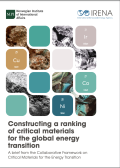
This report introduces a comprehensive methodology for developing a global ranking of critical materials specifically for renewable energy applications.
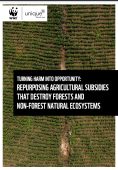
This report explores the transformative potential of repurposing these harmful subsidies to protect the environment and promote sustainable food systems.
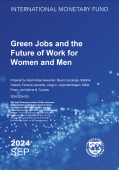
This report explores how a transition to a sustainable green economy can be optimized to benefit all workers, regardless of gender.
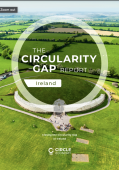
This report highlights the urgent need for Ireland to transition to a circular economy to reduce material use and carbon emissions.
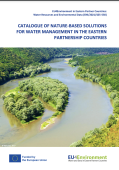
This catalogue highlights how NbS can be effectively employed to improve water resources management while promoting sustainability.
